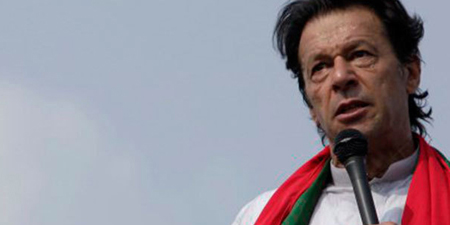PTI chief claims two TV channels getting money from government
JournalismPakistan.com | Published: 30 September 2016 | JP Staff Report
Join our WhatsApp channel
Imran Khan, chairman of PTI, accused two TV channels of receiving government funds in exchange for favorable coverage. His allegations intensify ongoing tensions with PML-N.Summary
ISLAMABAD—Pakistan Tehreek-i-Insaf (PTI) chairman Imran Khan, addressing a massive rally in Raiwind on Friday, alleged that two television channels were receiving funds from the government in exchange for favorable coverage. While Khan refrained from directly naming the channels, he provocatively asked the crowd: “Do you know the names of those channels?” — a question that drew loud responses from his supporters.
The PTI leader has previously targeted specific media groups, often criticizing what he describes as their bias and alignment with ruling parties. His remarks in Raiwind came at a time when tensions between the PTI and the ruling Pakistan Muslim League-Nawaz (PML-N) were at a peak.
Khan also accused the government of using public resources to manipulate public opinion. He specifically pointed to the PML-N’s media cell, reportedly being run by Prime Minister Nawaz Sharif’s daughter, Maryam Nawaz. According to Khan, the cell was actively engaged in orchestrating online and media campaigns against PTI, which he described as part of a broader attempt to silence dissenting voices.
He further mocked what he called the ‘moto gang,’ a term he used for PML-N loyalists, suggesting that the group was working around the clock to counter PTI narratives on television and social media platforms.
The fiery speech in Raiwind reflected Khan’s long-standing narrative of corruption, misuse of power, and media manipulation by the ruling elite—issues that continued to resonate strongly with his supporters.
KEY POINTS:
- Imran Khan claims two TV channels funded by the government.
- Accusations made during a significant rally in Raiwind.
- Khan criticizes media's bias towards ruling parties.
- Mentions of PML-N's media cell run by Maryam Nawaz.
- Khan's rhetoric focuses on corruption and media control.

























